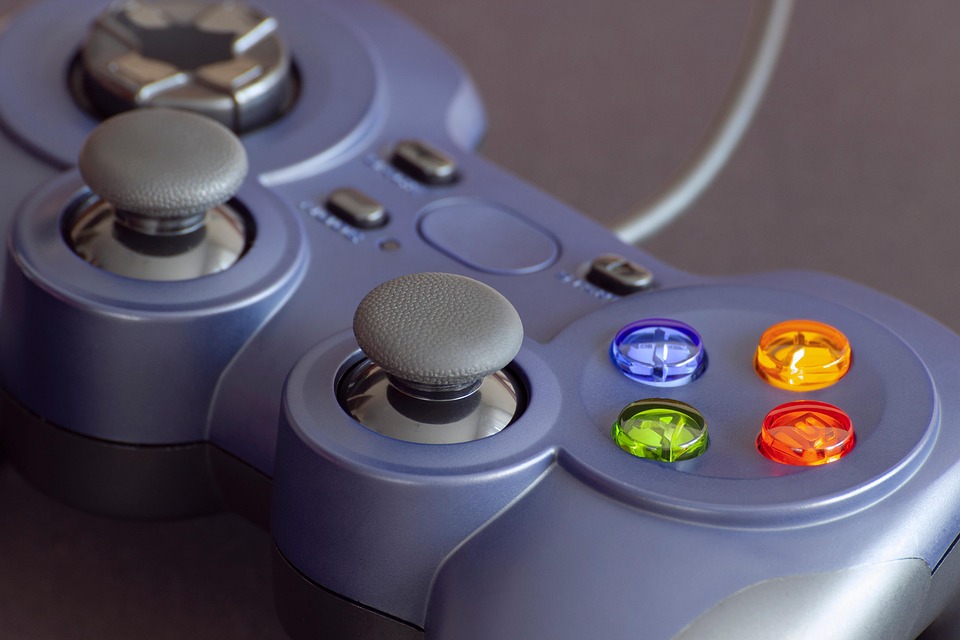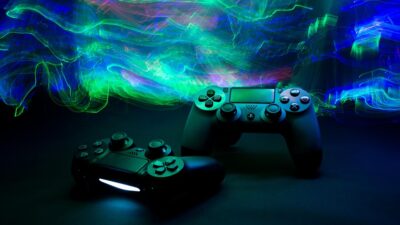In a world where gaming has become a dominant form of entertainment, the significance of the tools we use to interact with digital worlds cannot be understated. Game controllers, whether they are designed for PCs, consoles, or mobile devices, profoundly influence how players experience games. Beyond mere functionality, these devices shape engagement, immersion, and emotional responses. This article delves into the psychology of control and examines how game controllers affect player experiences.
The Sense of Agency
At the heart of gaming lies a fundamental psychological principle: the sense of agency. Players derive satisfaction from the ability to influence outcomes within the game world. Game controllers are the primary mechanism through which this agency is exercised. A well-designed controller enhances a player’s ability to execute actions precisely, creating a more immersive experience.
Studies have shown that the more responsive a controller is, the higher the level of satisfaction and engagement a player feels. For instance, the tactile feedback provided by haptic systems can mimic the sensations of real-world actions, reinforcing the sense of control. This feedback loops between the player’s actions and the game’s responses creates a heightened emotional connection to the game world, fostering a deeper investment in gameplay.
Ergonomics: Comfort and Performance
Another critical aspect of game controllers is their ergonomic design. Comfort has a profound impact on how long players can engage with a game and how effectively they can perform. Controllers that are awkward to hold or fatigue the player’s hands may lead to negative emotions, hinder concentration, and ultimately detract from the gaming experience.
For example, players using a poorly designed controller may find themselves frustrated, leading to a decreased desire to continue playing. In contrast, well-crafted controllers that fit comfortably in the hand and facilitate easy access to buttons and triggers can enhance performance, make gameplay more enjoyable, and keep players engaged for longer periods.
Customization and Personalization
The ability to customize controllers can significantly affect a player’s experience. Many modern controllers offer options to remap buttons, adjust sensitivity, and even change physical components like thumbsticks or grips. This level of personalization allows players to tailor their controllers to suit their individual playstyles and preferences.
Psychologically, this customization fosters ownership and connection. When players feel that their controller is uniquely theirs, they are more likely to develop a deeper attachment to both the controller and the games they play. This sense of identity can elevate the gaming experience, making each victory feel more personal and rewarding.
The Impact of Feedback Mechanisms
Feedback mechanisms, such as vibration and audio cues, play a crucial role in how controllers affect player experience. A controller vibrating upon taking damage or when completing an action can create a more immersive experience, making the player feel more attuned to the game’s events.
Furthermore, social gaming often involves shared experiences, where players sit together and enjoy the game. Controllers that allow for simultaneous play encourage cooperation and competition, enhancing the social aspects of gaming. This communal aspect can lead to emotional highs and lows, as players cheer each other on or engage in friendly rivalry.
Game Genre and Controller Dynamics
Different game genres benefit from varying controller designs. A first-person shooter may require quick reflexes and precise aiming, thus favoring a controller with enhanced responsiveness and customizable sensitivity settings. Conversely, platformers may prioritize accessibility and comfort, leading to designs that enable prolonged gameplay without discomfort.
This understanding of specific needs within diverse genres informs game developers and hardware designers, shaping the controllers that accompany various gaming experiences. The compatibility of the control scheme with the game’s mechanics plays a critical role in how players perceive and enjoy the game.
Conclusion
The psychology of control in gaming is a multifaceted subject that encompasses agency, ergonomics, customization, feedback mechanisms, and genre dynamics. Game controllers are more than just tools; they are integral components that substantially shape player experiences, emotional connections, and overall satisfaction. As gaming technology continues to evolve, understanding the psychological impact of controllers will be crucial in creating experiences that resonate deeply with players. Ultimately, a well-designed controller does more than facilitate gameplay—it can transform an ordinary gaming session into an unforgettable adventure.



